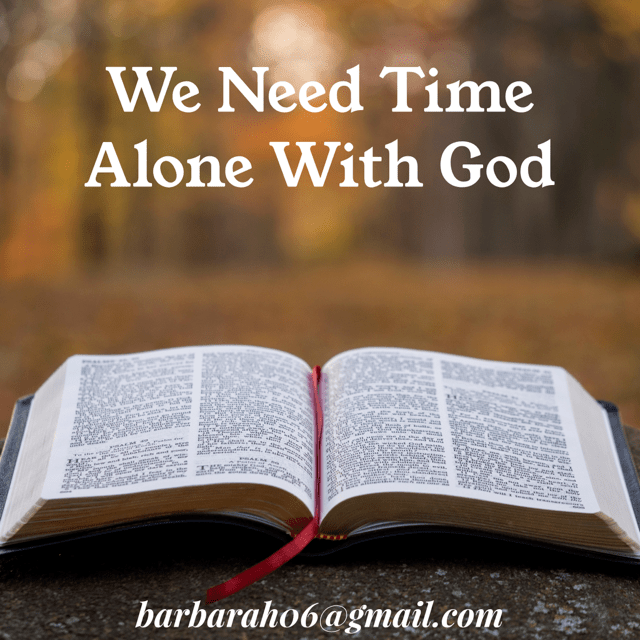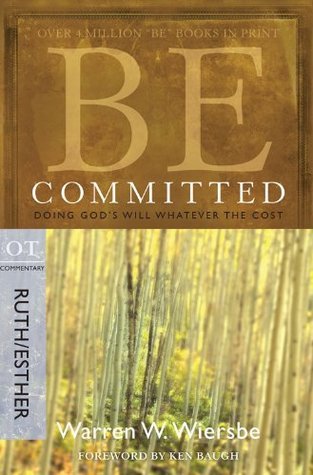Good routines help us establish good habits.
Reading the Bible is not just a good habit to get into: the Bible is our food, our letter from God. But sometimes it takes implementing a good routine to make time to read Scripture.
But then we have another problem: when our routine is upset, our good habits fly away.
My best time to read the Bible and pray is in the morning, before my mind gets cluttered with a thousand other things. Having my devotions, or quiet time, first thing helps set my heart in the right position and fortifies me for the day ahead.
But if I oversleep, have to get up early for an appointment, travel, have company, or get sick, my routine is disrupted. It’s not impossible to come back to a quiet time later in the day, but it’s much harder for me.
I imagine the same is true for you as well, whether your best time is in the morning, or right before bed, or somewhere between.
And then some disruptions occur not just in one day, but in a whole season of life.
What are the difficulties peculiar to each phase of life?
Childhood and teen years. I didn’t grow up in a Bible-reading home and didn’t hear about the importance of reading the Bible until I was around sixteen. I was busy with studies, a part-time job, and responsibilities at home. But my biggest hurdle was just getting a regular routine established. I had to start over many times. Eventually, devotional time became a matter of “want to” rather than “supposed to,” though that struggle pops up again and again.
My second big problem was understanding what I read. I had not grown up in church, and I was a new Christian. It didn’t occur to me to ask someone for help when I came to difficult passages. I just shrugged my shoulders and kept going until I came to something that spoke to my heart. But because most of it was new to me, I got plenty to “feed” on and to grow. I wasn’t aware of study Bibles then which contained explanatory notes, but that would have helped.
Early adult years. College was one of my busiest times of life. I was always an eager student, but college life was harder and more time-consuming than I expected.
In a Christian college, it’s easy to just ride on the spiritual atmosphere. We had chapel most days, prayer groups and devotions in the dorms, Bible reading and prayer at the beginning of most classes, and Bible classes themselves. Those are all beneficial, but none of them is the same as meeting with the Lord alone in a personal way.
Even if one does not attend college, life as a new adult has challenges. Working a full-time job is an adjustment. All the responsibilities of adulthood, like cooking, cleaning, grocery-shopping, are now on your shoulders. You may scramble to get going in the morning, spend time with friends or take care of responsibilities after work, and then fall into bed at night.
Then when you get married, you have all of that plus the adjustments of getting used to living with another person. Though marriage has lovely moments, there are small irritations with someone else’s routines conflicting with yours.
However, this period of time was actually the easiest for me in regard to devotional routine. Life was certainly busy. But college life was very structured and scheduled. It was easy to schedule the time to spend with the Lord. And with dorm roommates or early marriage, some discussion and flexibility helped work around each other.
Parenthood. This stage of life was hardest for me to maintain a quiet time, especially after my second child was born. Schedules evaporated. What I called the zombie weeks of disrupted sleep and nighttime feeding made me groggy. During the baby’s nap time, I had to choose between cleaning, sleeping, or reading my Bible. Usually sleep won out.
Then during the second child’s nap times, I had a preschooler who needed attention.
Getting up early—if I even could—would often result in the kids waking up, too.
I listened to Christian radio more then, but like chapel services and Bible classes, that didn’t take the place of one-on-one time with the Lord.
Don’t get me wrong–I loved my children and enjoyed them. But having solitude and quiet time was hard these years. I’d get to the end of the day and pray tearfully, “Lord, I don’t know when I could have had time with you today.”
It finally occurred to me to ask Him at the beginning of the day to help me be alert to opportunities to read for a bit. I couldn’t have a big, sit-down meal spiritually. But I could snack throughout the day. I wrote more about this in Encouragement for Mothers of Young Children.
The Taxi Years. That’s what I called the era when it seemed like we spent more time in the car than anywhere else, driving the kids to school, piano lessons, sports practices, friend’s houses, church events. I had quiet time at home during the day, but I also had to run errands, clean, and grocery shop. And at this time I was also the most active volunteering for church and school.
When we homeschooled for four years, solitude during the day was at a premium. We always had a quiet time in the afternoons when everyone was expected to read quietly or do something in their rooms, if they were too old for naps. That was my devotional time if I hadn’t had it earlier.
Empty Nest and Senior years. You’d think this stage of life would be the greatest time for Bible reading and prayer. And in some ways it is. But new challenges arrive in the form of physical issues or sleep problems. When one spouse retires and is suddenly home all day, the other’s routine needs adjusting. Often one parent or the other requires extra help, if not full time caregiving. Adult children have needs we like to be able to help with.
Illness. At any stage of life, an unexpected accident or illness can disrupt life for weeks, months, or even years. Some may think that extra time resting would allow for even more prayer or Bible reading time. But you’ve probably experienced being fuzzy-headed when you have a bad cold for a few days. Imagine that feeling over the course of a long-term illness. Amy Carmichael wrote in Rose from Brier, after being an invalid for a few years:
I have not found myself that illness makes prayer easier, nor do any of our family who have been ill tell me that they have found it so. Prayerfulness does not seem to be a flower of the spirit that grows of itself. When we are well perhaps we rather take it for granted that it does, as though what is sometimes called a “sick-bed” offered natural soil for that precious flower. I do not think that it does. A bed can be a place of dullness of spirit as well as of body, and prayer is, after all, work—the most strenuous work in all the world. And yet it is our only way of joining the fighting force. . . So what can we do about it? (p. 199).
One night, in severe pain, when she could “no more gather myself up to pray than I could turn in bed without . . .help,” she came to Psalm 109:21: “But do thou for me, O GOD the Lord.”
And soon the prayer passed into the most restful kind of intercession, the only kind the ill can attain unto, for they cannot pray in detail and they may know little or nothing about the needs of their dearest. But He knows all, down to the smallest wish of the heart. So we do not need to coin our gold in words, we could not if we tried: we are far too tired for that, and He who knows our frame does not ask us to do anything so arduous. Do Thou for her, do Thou for him, do Thou for them, O God the Lord (p. 200).
In any stage, the first necessity is to make time with the Lord a priority. Other duties and distractions will always pull us.
In my early married years, our senior pastor was an older man and our associate pastor was perhaps in his early thirties. They were discussing with someone else the struggles to keep a consistent quiet time. The younger man looked to the older pastor and said, “I’m sure this isn’t a problem for you.” Surely a dedicated man of God who had walked with Him for decades didn’t have to wrestle with time or interruptions or his own flesh to make time to spend with God.
The older man just laughed. Of course he still struggled. As long as we have an old nature pulling against our best intentions and an active enemy trying to trip us up, we’ll struggle.
But we remind ourselves that time in the Bible in prayer is not just one more thing to do. We greatly need to fellowship with our Father, to draw grace and help and strength from Him.
The second necessity is flexibility. I don’t like a rigid schedule, but I like a certain amount of structure and predictability to my days. When interruptions or distractions come, I need to look for other ways and times to meet with the Lord. Sometimes that means setting aside other reading or pleasurable activities. I admit I don’t always feel like switching gears if I sit down to read or watch something or scroll through my phone and I remember I haven’t met with the Lord that day. But when I set aside what I was doing to spend time with Him, I am always blessed.
The third thing we need to do: rely on God’s grace. God isn’t going to zap us with a bad day for punishment if we miss meeting with Him. The Bible doesn’t tell us to read a certain amount of time or verses every day. But it does tell us to meditate on God’s Word day and night. This is one area where previous memorization comes in handy.
Some days or seasons of life are busier or more exhausting than others. A. W. Tozer said, “We must not select a few favorite passages to the exclusion of others. Nothing less than a whole Bible can make a whole Christian.” We need times to dig deep and soak long in God’s truth. If we only read a verse a day or stayed in the Psalms over the course of a lifetime, we’d be pretty weak. But during busy or exhausting days or seasons of life, when we can truly only read a verse or two, God will feed us.
Have you had to change your devotional routine in different stages of life? What helped you?
(I often link up with some of these bloggers.)



















